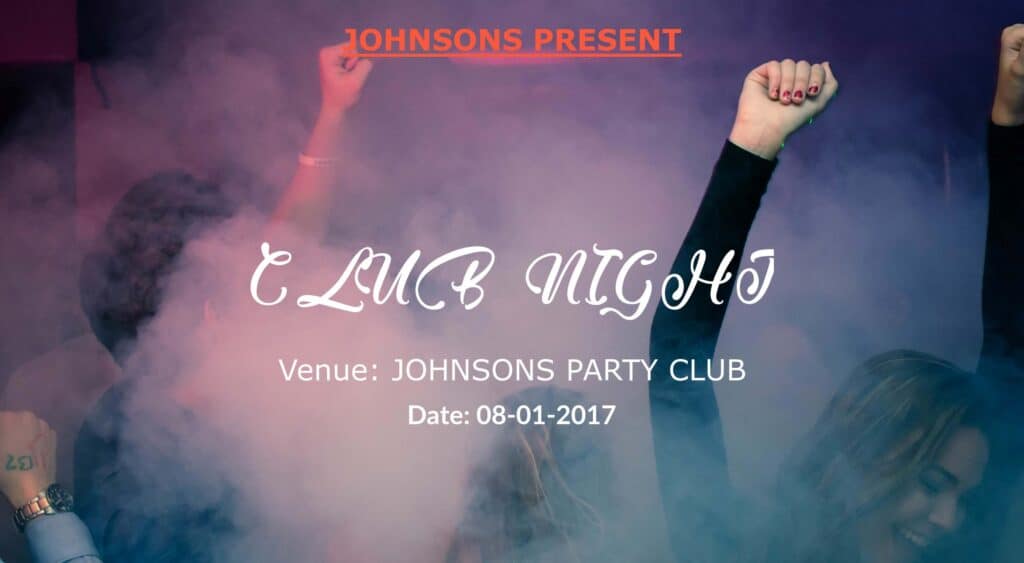7 Top Plugins For WordPress (2025 updated)
Designers understand the importance of pushing boundaries while keeping user experience at the forefront. Yet, not every creative idea is easy to implement through a theme alone—or even with solid…

Designing fun, visually appealing party banners can be a complicated task if you don’t have enough graphic design experience or know how to use image editing software, such as Photoshop or Sketch. Buying and installing an image editing software, installing custom fonts, designing the graphics and figuring out how to apply a text overlay can […]
Designing fun, visually appealing party banners can be a complicated task if you don’t have enough graphic design experience or know how to use image editing software, such as Photoshop or Sketch. Buying and installing an image editing software, installing custom fonts, designing the graphics and figuring out how to apply a text overlay can take a great deal of time and cost a lot of money… However, there is another option—Cloudinary—that is easy to use and can speed the design process with the use of a single URL.
Cloudinary is a cloud-based service that provides an end-to-end image and video management solution including uploads, storage, administration, image manipulation and delivery. One example of image manipulation features is Image Text overlays (which is the topic of discussion).
In this post, I will show you how to achieve the image overlay in the example above using Cloudinary, not just with common fonts, but with any custom font of your choice. At the end, you will see how simple, powerful and flexible this solution is compared to using graphics editing software.
Cloudinary is simple to setup and use. You just need to create an account, after which you’re assigned a cloud storage for your images:
Create a FREE Cloudinary account using the signup form.
When you sign up successfully, you’re presented with a dashboard that holds your cloud credentials. You can safely store them for future use:
Now that you have a free Cloudinary account, you can give it a test drive. Go to the Media Library and upload some images to your cloud:
As you can see, the upload widget enables you to either upload from your computer or provide a link. Don’t bother about hunting for nice pictures on your computer, you can use what I got you from Pexels.
Click on the thumb showing the image you uploaded and copy the link from the image’s details page.
This is the what the original image looks like after scaled down to 700px width:
Before we start implementing the text overlay feature, let me tell you about the core Cloudinary offerings:
Text overlays in this context refers to applying characters as a mask on graphic images. This process is commonly used in image editing tools like Photoshop, Sketch or Illustrator, where you import an image to your work art board and use the text control to apply characters above the image. For example:
The text printed on the party background image is what is referred to as “text overlay.”
I used the font Verdana in the “JOHNSONS PRESENT” text in the example above. Verdana is a popular font and is readily available as a common font. However, in some situations, you may need to use custom fonts. In this case, you could go to a website like dafont.com, download a custom font, install on your machine and use in your designs.
Text overlays are applied as transformation via the transformation parameters, much like what we did with the width of the party image. The following example shows a text overlay on the image:
http://res.cloudinary.com/christekh/image/upload/w_700/l_text:Verdana_20_bold_underline:JOHNSONS%20PRESENTS,g_north,y_25,co_rgb:F9583C/pexels-photo-341858_hx5cva.jpg
This URL defines the many features going on with this image transformation:
Our party banner is taking shape, but to make the banner more festive, we want to add some crazy fonts. We don’t commonly see crazy fonts, hence you shouldn’t expect to see one. This is why you cannot just use l_text:CrazyFont.
Cloudinary is very flexible, though. You can upload your own custom font to Cloudinary, then use its public ID as the l_text value. Midnight Valentine is a typical party font that we can use. Download the zipped file, unzip, and upload the .ttf font file.
(NB: You can only upload .ttf or .otf fonts.)
You need to specify the type as authenticated and resource type as raw. You can do this while uploading via SDKs. Say Node for instance:
var cloudinary = require(’cloudinary’)
// Credentials retrieved from dashboard
cloudinary.config({cloud_name: 'CLOUD_NAME',
api_key: 'API_KEY',
api_secret: 'API_SECRET'
})
cloudinary.v2.uploader.upload(
__dirname + '/Midnight-Valentine.ttf',
{resource_type: 'raw',type: 'authenticated',
public_id: 'Midnight-Valentine.ttf'},
function(error, result) {console.log(result, error)
})
You can now deliver the image using the custom font we uploaded:
http://res.cloudinary.com/christekh/image/upload/w_700/l_text:Verdana_20_bold_underline:JOHNSONS%20PRESENTS,g_north,y_25,co_rgb:F9583C/l_text:Midnight-Valentine.ttf_80:CLUB%20NIGHT,co_rgb:ffffff/pexels-photo-341858_hx5cva.jpg
We chained another transformation to what we had before. This time, the l_text’s font style value is now Midnight-Valentine.ttf which is the public ID of the font we uploaded. We removed the g_north property, as well as the y property, so the overlay position stays at the default location, which is the center of the image.
Let’s have some more fun adding the venue and date of the party:
http://res.cloudinary.com/christekh/image/upload/w_700/l_text:Verdana_20_bold_underline:JOHNSONS%20PRESENT,g_north,y_25,co_rgb:F9583C/l_text:Midnight-Valentine.ttf_80:CLUB%20NIGHT,co_rgb:ffffff/l_text:Verdana_20:Venue:%20JOHNSONS%20PARTY%20CLUB,g_south,y_130,co_rgb:ffffff/l_text:Lato_18_bold:Date:%2008-01-2017,g_south,y_100,co_rgb:ffffff/pexels-photo-341858_hx5cva.jpg
The first image shown at the beginning of this article was designed in Sketch. The last image was built by composing parameters in a URL. You can imagine how powerful the latter is. Knowing the right properties in Cloudinary to use will enable you to start generating graphics dynamically without the help of a graphics designer.
You can learn more about these properties from the Cloudinary docs.
[– This is an advertorial on behalf of Cloudinary –]